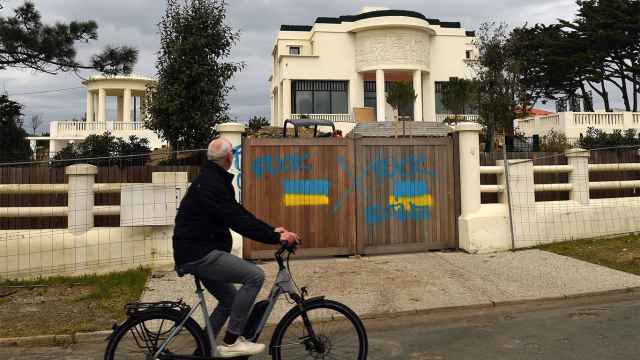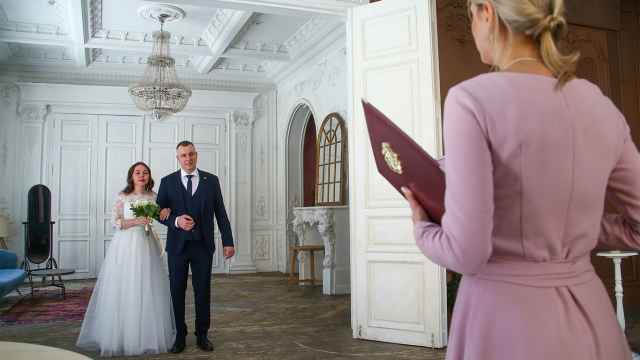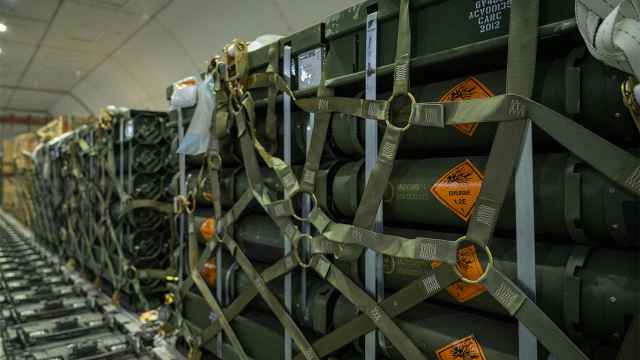WASHINGTON — Backers of the New START nuclear arms reduction treaty said they have the votes required for U.S. Senate ratification after two more Republican lawmakers announced their backing.
Mark Helmke, a spokesman for Indiana Senator Dick Lugar, the leading Republican supporter of New START, said Friday that enough senators are prepared to vote for the pact’s ratification. The treaty needs two-thirds support in the Senate to be approved.
Maine’s two Republican senators, Susan Collins and Olympia Snowe, said in separate statements that they support ratification.
“We’ve got enough Republican support to pass the treaty,” Helmke said, declining to name the backers because some have not registered their support publicly. “We are hopeful that Senator
Reid sets” a vote “as soon as possible,” he said, referring to Senate Majority Leader Harry Reid, a Nevada Democrat.
Reid plans to bring up the treaty for a vote before Congress adjourns for the year, spokesman Jim Manley said. The Senate first plans to finish debates on pending legislation to extend expiring tax cuts and a measure to finance government operations.
The treaty, signed by Presidents Dmitry Medvedev and Barack Obama in April to replace a 1991 accord that expired in 2009, would reduce each nation’s deployed nuclear warheads by about one-third to a maximum of 1,550.
Medvedev has said the State Duma would ratify the treaty immediately after the U.S. Senate.
Senate Minority Whip Jon Kyl, an Arizona Republican, has delayed a ratification vote while seeking assurances that Obama would modernize the nation’s remaining nuclear-weapons arsenal.
Kyl’s fellow Arizonan, Senator John McCain, said in a speech in Washington on Friday that he hoped the Senate “will be able to bring this up next week, and a lot of work is being done to that effect.”
“We are very close” to resolving concerns about whether the treaty curbed missile-defense systems, McCain, a Republican, said at the Johns Hopkins School of Advanced International
Studies.
Kyl is “doing a tremendous job working with the administration to resolve the issues associated with nuclear modernization,” McCain said.
Two-thirds of senators present and voting are required to ratify a treaty, or 67 if all 100 lawmakers are in the chamber.
Democrats have 58 votes in the chamber, Republicans 42.
Ratification in the new congressional session that convenes in early January could be more difficult because the November election narrowed the Democrats’ majority to 53-47.
Supporters such as Lugar argue that the treaty is needed to restore nuclear-weapons inspection of the Russian arsenal.
Snowe, a member of the Senate Select Committee on Intelligence, said in a statement she is “confident” the treaty “will provide predictability in our relationship with Russia and thus enhance global stability and most importantly our national security.”
Snowe said she would support the treaty if there is “sufficient” opportunity for debate and amendments to the ratification resolution. She said concerns about “our ability to verify Russian compliance” and “to develop and deploy effective missile defenses, and to modernize our nuclear weapons complex, have been satisfactorily resolved.”
Collins said in a statement she will support the treaty’s ratification after Defense Secretary Robert Gates and Secretary of State Hillary Clinton assured her in writing that the administration was also committed to reducing Russia’s estimated 3,800 tactical nuclear weapons.
Besides Collins, Snowe and Lugar, New Hampshire Republican Judd Gregg told MSNBC he favors the treaty’s ratification.
Senator Robert Bennett, a Utah Republican who like Gregg is leaving the Senate, said in an interview that he was “generally disposed” to back the treaty.
Two other Republican senators, Johnny Isakson of Georgia and Bob Corker of Tennessee, voted for the ratification resolution when it was approved by the Senate Foreign Relations Committee.





